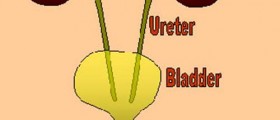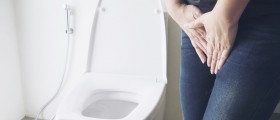
The term “cystitis” refers to any type of inflammation of the bladder. The inflammation can result from a bacterial infection of the urinary tract or UTI, which occurs when the pass from the bowel to the urethra and spread to the bladder, and that is the most common form of cystitis.
However, there is a type of cystitis that is characterized by chronic or constant presence of typical cystitis symptoms but that does seem to be caused by bacteria, which can be proven in a laboratory test of the urine. That type of cystitis is called interstitial cystitis and it is characterized by pain and chronic urge to urinate.
Interstitial cystitis often goes undiagnosed or misdiagnosed, even for years, because the symptoms it causes resemble those of more common, bacterial cystitis or urinary tract infection. This condition can affect anyone, regardless of the age and the sex, although it is believed that women in menopause are more prone to it.
Treatment options for chronic or interstitial cystitis may include oral medications, medications via bladder instillation, diet, surgery and bladder distention. This condition does not respond to antibiotics since it is not caused by bacteria or other infectious microorganisms.
Symptoms of chronic cystitis
Pain is the most prominent and most frequent symptom of chronic cystitis. The pain is located in the general pelvic area, especially above the pubic bone. The pain seems to worsen when the bladder is full and usually improves with urination, although that is not always the case. The pain can also become worse after consuming certain types of food or beverages. Some patients who have chronic cystitis also report pain or burning sensation in the urethra, especially when urinating.
Frequent urge to urinate is another significant symptom of chronic cystitis. A person suffering from this condition may feel the urge to urinate as often as every ten or fifteen minutes. The urge is usually very intense but the amount of the actual urine expelled is low and does not correspond with the intensity of the urge. Patients with chronic cystitis often wake up several times at night to urinate, even if the bladder is empty.
Other, although less common symptoms of chronic or interstitial cystitis may include pain or burning during sexual intercourse, feeling of pressure in the bladder and in the lower abdomen, pain or discomfort while performing certain everyday activities, such as driving, sitting, working and such.
- www.nhs.uk/conditions/interstitial-cystitis/
- www.nhs.uk/conditions/cystitis/
- Photo courtesy of Hellerhoff by Wikimedia Commons: commons.wikimedia.org/wiki/File:Emphysematous_cystitis_-_X-rax_-_SHF.jpg

















Your thoughts on this
Loading...